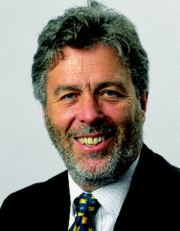New HQ gives BSRIA fresh outlook

An innovation-and-research role for integrated project teams is one of the roles that chief executive Andrew Eastwell sees for BSRIA.
With the move into a new building and the co-ordination of all its capabilities on one site has come the capability for BSRIA’s staff to interactive more effectively with one another and with the building-services industry.The move into its new premises earlier this year sparked off a seachange in the way BSRIA staff can, and do, interact with one another and with visiting members. Andrew Eastwell, the association’s chief executive, believes there are many drivers for this improvement. The new open-plan office building at Bracknell is vastly different from the adjacent industrial-style building with laboratories, test facilities and office accommodation all intermeshed like some enormous labyrinth. Compounding the problems of working together easily and effectively was the need for many activities to be on a separate site some miles away at Crowthorne. That facility is no longer used, the lease having expired and the work carried out transferrred to the Bracknell site. This consolidation and reorganisation of BSRIA’s activities represents a £7 million investment, of which £4 million was to purchase the freehold of the new site, and has proved to be an immensely valuable enabler. Andrew Eastwell explains, ‘We had been aware for many years of the need for the integration of design and construction teams. The new set-up is an enabling mechanism for us to physically achieve what we have been wanting to do for a long time, namely for BSRIA’s own staff to work together more effectively and to interact with the outside world — our members.’

Fully instrumented mock-ups of spaces and their services in BSRIA’S workshop facilities before work starts on site helps ensure that the project will be right first time.
The 2-storey building was gutted and specially fitted out to BSRIA’s requirements. Open-plan office accommodation on the first floor has achieved much more than just removing the barriers to communication and interaction that the cellular offices in the old building presented. The layout of the new building positively stimulates interaction and cross fertilisation of ideas. ‘Our skills and expertise come together much better now than they ever could before with people working in individual offices or in small groups on two separate sites,’ says Andrew Eastwell. The ground floor provides substantial and flexible facilities for conferences and seminars, with library and circulating areas where visitors and research staff can mingle and interact informally. Andrew Eastwell is a dedicated advocate of integrated teams to improve both the quality of working together in the construction industry and the standards of projects. ‘The ethos of an integrated team,’ he explains, ‘is that they all work together for the direct benefit of the client.’ But why should the scope of an integrated team be restricted to design, manufacture and contracting? ‘What about a research-and-innovation element?’ asks Andrew Eastwell. Inevitably, he suggests that this research-and-innovation element could be provided by BSRIA, as is beginning to happen on some projects, but there is also scope for universities to be involved, especially in ‘blue-sky’ research.

Valuable support for companies making air-filtration equipment is provided by a testing standard devised by BSRIA and independent testing of products.
BSRIA’s new facilities provide just the right venue for such team meetings, with the wide range of its in-house expertise readily available. Its workshop areas also provide the space and expertise for full-size mock-ups of spaces and their services to be constructed and tested using sophisticated instrumentation and computerised monitoring capabilities. An important aspect of such mock-ups is that they can be built and the services installed by the contracting team that will carry out the work on site. ‘In this way,’ says Andrew Eastwell, ‘contractors can develop and practise their installation techniques. The benefit is that work on site is right first time.’ The capability of the association’s new facilities to host meetings and stimulate interaction was demonstrated at a recent session on product testing and certification, with senior research engineer David Pickavance explaining the wide scope of the testing and certification services offered by BSRIA — with a distinctly commercial flavour. BSRIA is not an ivory-tower organisation. It is very much a hands-on operation with the declared aim of assisting the building-services industry and its clients to improve the quality of their products and services, the efficiency of their provision and the effectiveness of their operation. The direct consequences of that statement are that the industry sells more and gains more business, which results in BSRIA itself gaining more business and developing more services for the industry it serves. ‘We make more money, too,’ says David Pickavance. Fundamental to this success is the broad scope of BSRIA’s product-testing capabilities — from the micro-climate centre, to testing smoke-extract fans, certifying the thermal output of radiators, devising a method for measuring the performance of air filters for tobacco smoke...and many others. Those capabilities help manufacturers get their products right for market, with clear benefits for specifying consultants, installing contractors and, ultimately, end users. ‘We’re partners’ says David Pickavance. ‘Use us to help you succeed.’ With the very low level of investment in research and development that is so prevalent in the construction industry, the building-services sector should be much more alert to the opportunities available from BSRIA.
BSRIA is at Old Bracknell Lane West, Bracknell, Berks RG12 7AH.
Related links:
Related articles:










